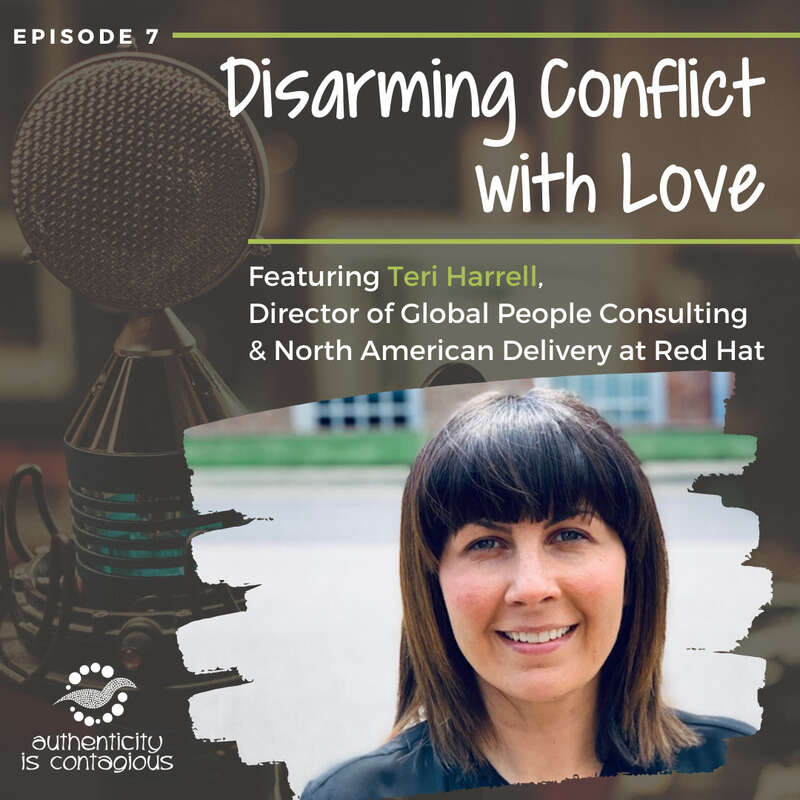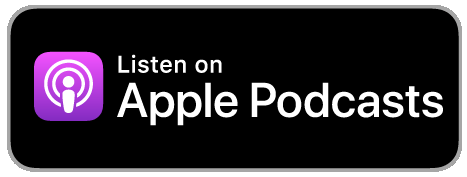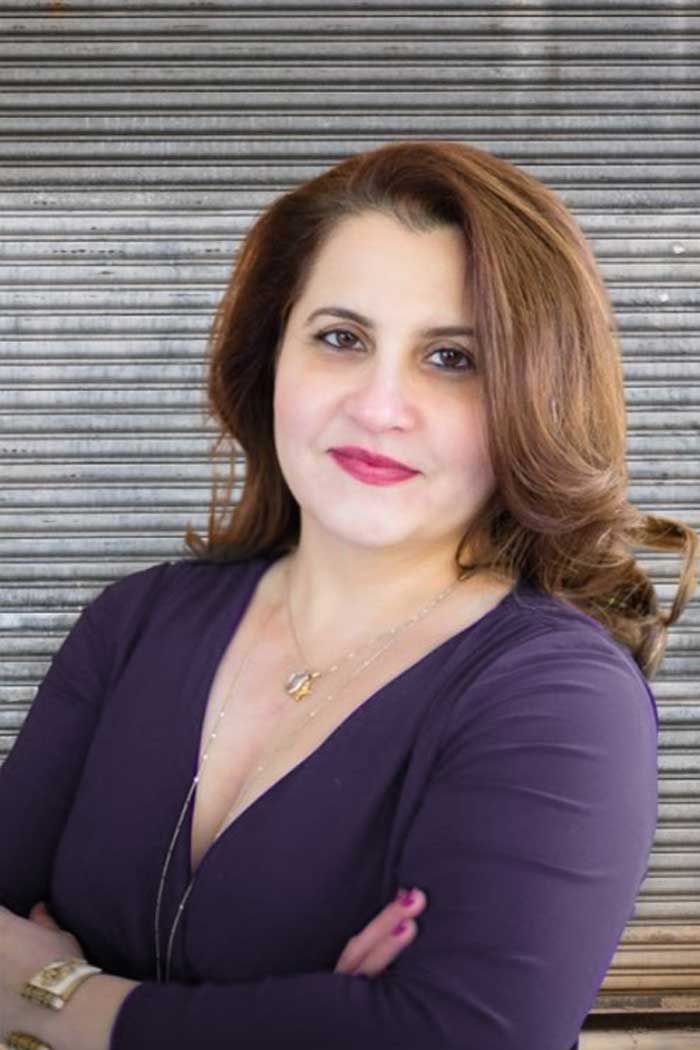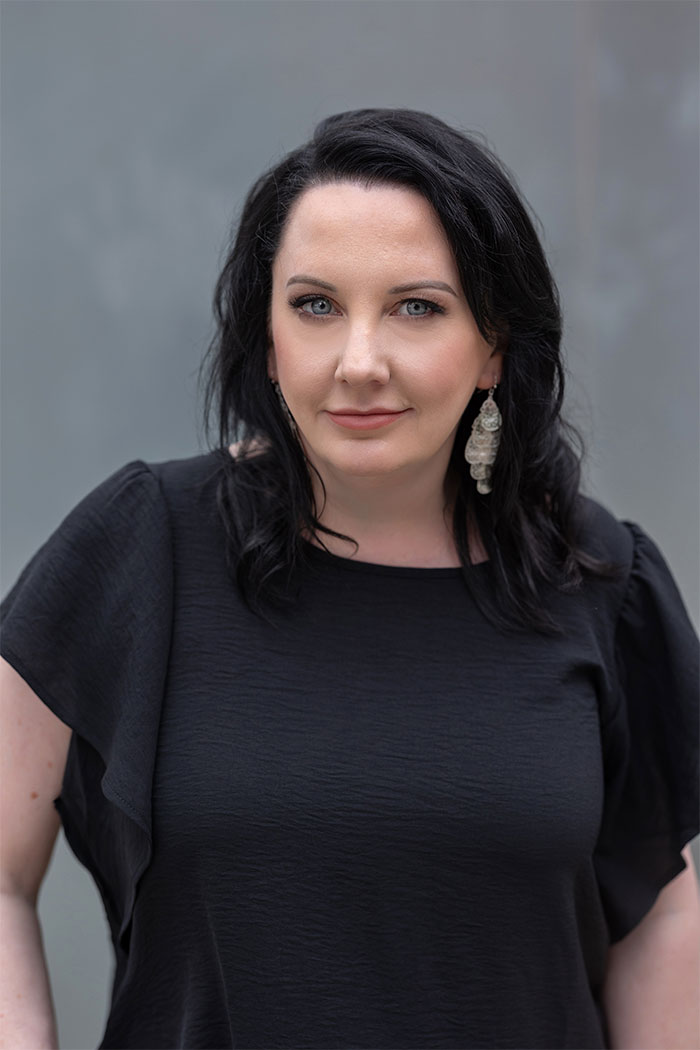
Episode 7
Disarming Conflict with Love, with Teri Harrell
We’re in a unique time in our lives where so many people are hurting due to the recent murders of George Floyd and Breonna Taylor, and the subsequent protests. And while we all need that human interaction and connection so we can be emotionally supportive of our teams, we’re also in a global pandemic that keeps us away from each other physically. So how can we lead with love? Teri Harrell is the North America Director for Global People Consulting at Red Hat, and today she shares her thoughts.
SHOW NOTES
We’re in a unique time in our lives where so many people are hurting due to the recent murders of George Floyd and Breonna Taylor, and the subsequent protests. And while we all need that human interaction and connection so we can be emotionally supportive of our teams, we’re also in a global pandemic that keeps us away from each other physically. So how can we lead with love? Teri Harrell is the North America Director for Global People Consulting at Red Hat, and today she shares her thoughts.
Founder of Authentic Leadership Advisors and Authentic Leadership Advisors Academy, Kathleen O’Grady is a visionary leadership coach and fearless leader. She supports driven individuals and organizations to achieve the impossible. Her ability to act as a catalyst for people to discover, rediscover, and embrace their unique genius is what makes Kathleen one of the most sought-after global executive coaches. She is a two-times past president of the International Coaching Federation Raleigh Chapter, and her work is featured in web articles by the NYTimes.com, Huffingtonpost.com, Forbes.com, and eFinancialCareers.com.
Her real-world stories, practical tools, and actionable insights help clients step out of their comfort zone to create authentic meaning and purpose in their life and work. By embracing change, Kathleen believes everyone can achieve something extraordinary.
Authenticity is Contagious is produced by Earfluence. Intro and outro music provided by Autumn Rose Brand.
Transcript
Kathleen O’Grady: I want to introduce my guest Teri Harrell today, Teri is on top of being a pioneer for women and in leadership and just a genuine, authentic soul, what she also happens to be is her job title, but she’s so much more than her job title. She serves, Red Hat as the North America Director for Global People Consulting.
Teri Harrell: I manage that team. Yeah. And our North America delivery team.
Kathleen O’Grady: That’s right. And, and so I feel like they’re so lucky to have you, of all people serving in that capacity because of who you are and because of the perspectives that you’ve been able to gain as far as your family and your own life. So what have you noticed about that recently. I know you and I chatted a few times over the last week or so, and you shared us a pretty powerful and heartwarming story with me about some of the meetings that have been going on at work and what you’re finding in terms of how you’re showing up.
Teri Harrell: There’s been a lot of tears. There’s been a lot of connection. For my direct team I’m definitely reaching out, making sure everyone and their families, you know, just checking in to see how they’re doing, how they’re dealing with all of this.
I was a part of a recent, beautiful experience, where an individual on my team used their voice in a beautiful way, to share some of the challenges, that they’re processing and was able to invite others to chime in and participate in a dialogue. And you know, where some of this started with some fear and some anxiety on, you know, I want to do this, but I don’t know where this is going to go.
The beautiful thing was that, it ultimately went to a place of love, you know, and it encouraged others to speak their voice and chime in. After this exchange occurred, I actually had to go and present at another meeting and I was asked by this group, I was on a panel and they asked me, you know, when had I ever been proud as a leader?
And, you know, I, I was about to get choked up. I immediately express this example of what had just occurred on my team, where I was so incredibly proud as a leader where someone was able to trust that we had a safe space, that they leveraged our open culture, that they spoke their truth in a time of crisis. And it perpetuated this beautiful dialogue that is still ongoing and it’s been beautiful to see the reaction from the broader group and the warmth that created in a time of sadness.
Kathleen O’Grady: Yeah. I want to acknowledge you Teri for creating that space for that to happen. It’s, it’s not only about the values that Red Hat holds and open being one of them but you are among a lot of important leaders in that company and you held the space for that to happen. So how does that feel for you?
Teri Harrell: You know, my initial reaction to that is I am grateful that they trust me, you know, I don’t look like everybody on my team and I love that. In order for us to have these types of conversations, I think you really, you need to practice some of the lessons that you teach. You know, you need to be genuine, you need to be authentic, you need to be vulnerable. And it’s been humbling to be a part of those raw discussions with people, because I care about them.
And I care about their families and we have to continue to find ways to be able to talk about this.
Kathleen O’Grady: What I have been, I guess, relieved by is that for the first time ever, I think. CEOs of companies and heads of associations and leaders around the country and even around the world are putting out specific messages about Black Lives Matter and mentioning the names of the departed and those who were sacrificed for us to learn these hard lessons again.
In some cases in the past, you might have had occasional companies come out and identify, you know, in coaching, we call it naming what’s in the space. Right? But not to this extent and not to this degree and not as quickly, I realized that there’s always gotta be that first follower.
Right? It’s like the I’m sure that people in the C suite are having to decide, do we want to remain silent and if we do, what does that mean for our reputation right now? And it’s nice to see that, you know, the CEO of Red Hat, I believe his, his announcement came out yesterday at the start of the week and, and more and more companies are following suit.
And it’s it’s about time really? Don’t you think?
Teri Harrell: Oh yeah. I mean, listen, I’m lucky. I’m lucky. I get to work at a company where I’m inspired by the leaders that I work with that encourage this. They create even more space for people like me, who wants to create space for people to have these conversations that we need more of that, for sure.
For those individuals that are in the U.S. that are listening, you know, this particular day where we’re having this conversation, you and I are wearing black. You know, for blackout Tuesday, there’s so many things that people can do. I was on a global call this morning with over 50 people on it all over the world, and nothing was said, but to see the number of people wearing black tee shirts, that’s solidarity that speaks volumes to my soul.
And it’s putting a tee shirt on, you know, it’s these little simple acts of kindness that we can all do to make a difference. I’ll wear a black tee shirt every day for the rest of my life. That’s one thing, but it’s encouraging those other things that need to occur, the deeper rooted things.
Kathleen O’Grady: Yeah. And one of the things that we know to be true, is that what we focus on grows. And I started focusing on what was happening. I’ll confess, probably really heavily Wednesday in advance of the episode I did on, on diversity and race, because I wanted to be educated to what, as much as I could about what was happening in that specific moment.
But prior to that, you know, you just look at the news and you see all of this terrifying content. And so, my colleague, Holly Jo Jones, who I love dearly, she pushed me to download TikTok and I thought to myself, the last thing I need is another distraction and more social media, but I’m glad I listened because what I’ve seen on TikTok ever since, and I know I’ve been blowing up your phone, Teri with, with videos. I hope they’re not too annoying, but between Thursday of last week and today, which is Tuesday, June 2nd, 2020. I started to see less, examples of excessive force and brutality and more examples of police taking a knee, hugging people who are there to protest and more and more examples of entire cities holding a moment of silence or clapping together or singing together. And I feel like it’s, yes, it’s important for us to see the truth, but we need to see the whole truth, not just the fear-based truth, not just the clickbait or the, the things that the news media are, I guess, conditioned to sensationalize versus the positive stories.
And so. For those of you out there listening. If you’re not on TikTok you might as well check it out because that is, that is the gift that we have right now with technology is the ability to take videos in real time, post them in real time so that people who are following the things that matter to them and their identity and their authentic self they’re getting to see what’s really happening. Not just somebody else’s choice of what we get to see.
Teri Harrell: I love that. It’s so true. It’s those things that I want my kids to see.
Kathleen O’Grady: You were the one who introduced me to the America’s Got Talent, Archie.
Teri Harrell: Archie Williams. Yeah.
Kathleen O’Grady: Archie Williams. You know, there’s, there are no coincidences in this universe. So what are the chances that that episode would air how close to what’s happening now? Like a week or so give or take?
Teri Harrell: Yeah, I think we have to leverage those opportunities. When we see those connections, I think it creates an opportunity to have conversation.
Kathleen O’Grady: Well, and I think it’s a matter of exposure. So America’s got talent is a very popular show because it centers around music and who, who doesn’t love music. Right? Music is, is something that has a way of penetrating the cells of our body and our soul, in ways that words alone cannot. And so when you see a man for those of you who don’t know what we’re talking about, America’s got talent. It’s a show about people competing, you know, with some sort of talent. And, and so this man was in prison for what, 37 years.
Teri Harrell: Yeah
Kathleen O’Grady: For a crime he did not commit as a young black male in Louisiana. He was detained in one of the most violent prisons in the country, if not the world. And the way he maintained his sanity and his soul was by singing and he was able to see the show America’s Got Talent while he was in the prison. And so he would visualize himself there and talk about manifestation.
Holy. Goodness. He got there. He was picked up by The Innocence Project, which is a nonprofit that works to release, incarcerated, individuals who were wrongly accused. And so through DNA, he was excused from the prison and then somehow made it his way to America’s Got Talent and the song that he sang on his audition was, Don’t Let the Sun Go Down on Me, which I believe is originally Elton John.
Teri Harrell: Yeah.
Kathleen O’Grady: And his rendition. I mean, Simon Cowel said, you know, I’m never going to hear that song the same way again. That’s the life of a person that we’re only getting to see the rising out of the ashes and the success story, right? Who doesn’t love a success story. But what I want to focus on is I want to focus on the people who are still either literally in prison or incarcerated in their own beliefs or incarcerated by the culture that we still need to change so that we can give them a wayto stay focused and visualizing the hope of their future, instead of continuing to focus on the past and the pain. And I know we have to learn from our history because we keep repeating it for Pete’s sake. You know, what are your thoughts on that Terri? Like how do we really invite all of us who are hurting to decide what we want, this, this new relationship to look like?
Teri Harrell: Yeah. You know, Archie’s story was really inspiring to me because of that message for hope to see what he’s doing for himself and others right now, after all that he’s been through, I was like, wow, if he can do that, I can surely do a lot more. When I think about those hopeful opportunities, I think they really do all begin by listening and understanding and then taking action.
And I think that a lot of us are, again, no judgment, it’s such a multi dynamic complex situation that I only understand a sliver of, you know. But if we all focus our time and energy from a place of love to be compassionate and work towards progress. I can only see beautiful things coming from that.
So I think leveraging from the hope that others have, the hope that we have within ourselves and taking action on that is one of the most important things that we can do for ourselves, for our community and for our kids.
Kathleen O’Grady: It makes me think of a video I saw on TikTok today of, I know Holly Joe created a monster, but it was a picture of, a video rather of two I’ll call them toddlers, but probably just old enough to, to run in a, in a very like cute, but still how kind of way. And I believe it was taken in New York and one of the little boys was a white boy and the other little boy was a black boy, and they were running towards each other with their arms outstretched, and they just jumped into each other’s arms and were hugging and swinging back and forth in such an innocent way.
And I mean, I feel like innocence it ties back to what you said about listening. When you come with innocent curiosity and you don’t assume to know who a person is based on how they look or what category they belong to or what cultural background they belong to, then you’re automatically going to learn something new about that person and hopefully yourself.
So when we start at any ALA Academy, A cohort on the first morning of the first day, obviously people are primed to know what they’re stepping into and, and they all want the same things, which is to become more authentic. But when we open up our class every, every first day, we ask a powerful question, which I won’t give away cause it’s one of our, one of our secret weapons, but we ask a question and then everybody starts to talk about who they are. Not related to their job title, not related to any sort of label, but basically this is who I was before I started to label myself or this is the experience that I feel defines my character because I made it through.
And I’ll tell you these stories they’re they run the gamut from rape, abuse, crime, addiction, all of these things that, that have happened to people. Everybody has a story, but we don’t know the story. So we don’t know who’s hurting and why. And so these are not my words. But one of our colleagues at ALA Academy, Marcy Miles, and I were talking, yesterday and. And she focuses her, her work on authentic leadership and self care. And she’s a former nurse and she worked in the prison system as a nurse. And she said to me, you know, Kathleen, she said, I feel like, if people really want to heal as a humanity, then we have to recognize that we’re all in pain.
And she said, even the man who had his knee on George’s neck must have done that because of the pain that he was in for some reason. Now we’re not justifying his behavior by any means, but like people who, who love themselves don’t want to kill another person. So the point here is how do we collectively learn to love ourselves? And reinforce that not just within our families and our friendship circles, but how do we bring love to corporate America and the military and police departments and things like that. How do we make it a core competency? Quite frankly.
Teri Harrell: You know, you’re hitting on something that is really important. And I think we’ll find that this is going to become a hot topic going forward. I was just talking to somebody else about this the other day. You know, when, when we were children, we all learned how to speak a language, you know, when you learned it from various people environments. You didn’t just wake up one day and have a language.
Sometimes you learn how to speak really positive things and sometimes you learn how to speak really negative things. But the point is that process of learning something and unlearning something I think is going to be really pivotal as we begin to have more of these conversations, because I think it’s really clear and I’ll just speak for myself.
There are things I need to unlearn. And there are things I need to learn more about. Everyone’s going to be on a different journey. And to your point, everyone has a different story. I think there’s going to need to be a balance of listening, learning, and unlearning. And I think if we all have open hearts and can have some self awareness. We can all grow individually, but we can all grow together as a community.
Kathleen O’Grady: I couldn’t agree more. And there’s a powerful question that comes from one of the books that we have the participants at ALA Academy read. It’s Fierce Conversations by Susan Scott. So I can’t take credit for this question, but I wish I could. The question that I feel like we all have to ask ourselves right now, as it relates to the change that’s needed is, what am I pretending not to know about myself?
Because we all want to believe that we’re the exception that everybody else is this, but I’m, you know, I’m not, or it could never happen to me. Or yeah, maybe once or twice, I might’ve said something racist, but I really didn’t mean it. I was just playing along or, you know, any one of those things. And so I want what I want to say, just, you know, like you said, speaking for myself. There’s no point in me beating myself up for mistakes of the past because they’re of the past. What I want to focus on now is how can I choose to be intentional about every single interaction that I have and go even deeper into the work that I already do around understanding people’s identity stories and not who are they based on what they do, but who are they based on their soul. What is the way this person is talking to me? What am I taking from the way they’re presenting themselves? What is it that they want me to know about who they are and how can I be even more curious and listen deeper and ask powerful questions to really get at that? I had a session yesterday with an African American female leader and in the nonprofit space.
And she said, you know, I’m toggling back and forth between wearing my, my leader hat and deciding how are we going to communicate about this to our whole company, but then also allowing myself to be a black female. And, and how do I, how do I show up as both.
And so we spent the session talking about that. And I feel like there’s a, probably a lot of people out there who are people of color who are still trying to conduct themselves business as usual, while cringing inside over the smallest microaggressions. And so how do we, like you did. How do we create that space for them to talk about?
Teri Harrell: And I’ll share a story of something that happened this past week. Well, first of all, let me just answer your question. You pick up the phone, you call somebody.
Kathleen O’Grady: Simple for them. You know, we’ve got to create some sort of new something that makes this, not just something that people do now for the next few weeks or the next couple of months until this all kind of blows over, so to speak, but permanently forever.
Teri Harrell: I had a conversation with somebody. We just had a raw, honest conversation checking in on each other, talking about some of the experiences we were going through in that particular day. And this person sent me a text following up later that night. And they said, you know, I, I felt like I had to put a smile on my face and kind of fake it through the rest of the day.
But I just wanted to say thank you because our conversation was refreshing. It was real. It helped me get through the day. And I said, well, you did better than me because I wasn’t smiling. I cried the rest of the day. You know, I said, we’re here for each other, you know, we’re learning together, but you know, it’s just creating that space for each other.
Going back to a point you were making earlier, one of the mantras that I really try and live by is everything is a blessing or a learning. And when you engage in a conversation with someone where they may be saying things where you are creating perspective in judgment that looks like, wow, there’s some ignorance there or there’s some lessons in life that they haven’t been exposed to, whatever that voice is in your head. To me that is just a reminder and an opportunity that we need to create more awareness and we need to have more conversations. So I know there’s sometimes frustration when there are interactions with people who don’t think similarly.
My thought process on that is that that’s that’s okay. You know, this, this is a point in time where someone is on their journey and we have an opportunity in that moment, going back to, you know, how much information do you give a kid? In that moment, how much it, you know, it’s just, it doesn’t matter if you’re a child or an adult, you gotta meet them where they’re at. And I think if you’re coming from a place of love, you know, you’re not going to be able to help yourself other than shining some light on that person.
Kathleen O’Grady: Yeah and I’ll add to that, that the way you shine that light is to start with non-judging. Stay open, stay curious and then compassionately say, you know, may I share a story with you that might kind of stretch your perspective on that a little bit.
And that’s a totally different approach to just shutting down assuming that that person is not like you and that they can’t be trusted or that, you know, they’re ignorant or stupid or uneducated or whatever, but just like, see if you can start a conversation without shaming them or coming across, like you’re better than them.
Because if, if, if people continue to have this zero sum game approach to resolving conflict, we’re never going to get anywhere. So the way, the way we show people how to take responsibility for their beliefs is by taking responsibility for our own. And so if I say like, Oh, well, I didn’t know any better like I wish somebody would have told me, I don’t appreciate that person being so harsh and judgmental towards me. Well, then I have to be the one to not be harsh and judgmental towards somebody else if they, if they are lacking in some sort of way. So the irony of all of this is that we all want the same thing.
And we don’t know how to give it to each other because we don’t know how to give it to ourselves. I always say the relationship we have with the people outside of who we are is a direct extension of the relationship we have to ourself our spirituality or any sort of belief system that we hold. And so if somebody loves themselves, I keep saying this and I’ll never stop.
If somebody really loves themselves, they’re going to make mistakes. They’re going to say the wrong thing. They’re going to have disagreements and fights and wish they wouldn’t have said things. Right. You know, we’re all human. The point here is not to not be human, but to learn from those situations and say, there’s no good that will come out of me saying this thing. There’s no good that’s going to come out of me going on a rant on Facebook or as, as Mildred says, being a keyboard gangster. When you, when you disagree with somebody about something like it takes a lot of practice, but you really have to stay curious and open.
Teri Harrell: It’s interesting. Some of the interactions you have with people. I know when I adopted my oldest daughter, she doesn’t look like me. And I remember holding her and someone coming up to me and asking me, how much did that baby cost? And I remember replying to her and I was 26 years old. I was really young when we adopted her and I said, you know what, the baby was a gift from God that part was free. I said the process had some expenses to it, but that was manageable. But I remember looking at this adult who was significantly older than me in thinking.
Well first off, I can’t believe that you just said that. Right? But just those types of interactions, like how do you, how do you even respond to that?
Like how do you even like go in with a reaction, but for me, what I’ve learned as I’ve gotten older, it’s like, they’re all teachable moments. Right? But then the reverse can happen. I remember when Mari was a baby and I remember when she was an infant, this was before the texture of her hair changed. I was like, I am not going to be that white mother that does not know how to do her hair.
I watched 40 plus hours on YouTube on how to take care of her hair. And there was one day I picked her up from daycare and there was a black mom that came up to me and she criticized the way that I was doing her hair, that I wasn’t doing it well. And I remember just crying and calling some of my black girlfriends and I’m like what did I do wrong? Like I just, you know, I’m trying, and I thought it actually looked good that day, but it’s that it does, it’s just honoring your self love, knowing that where you come from is, is pure and good, not for everybody, but you know, you’re coming from that place, you know, it’s okay. And that acknowledging and honoring that sometimes people are saying these things because it’s a reflection of the journey of what they’re going through.
It’s about them, not you, but the way that you respond to it can be really powerful, especially in these conversations regarding race or whatever, you know, you made some really beautiful points earlier about the struggles of what victims are going through. It maybe a lot of, this is a victim of people just not loving themselves and not to take away from the harshness of some of these things that people unfortunately experience. But I, I don’t know. I think there’s a lot of things that you can build on as you know, you have more and more of these conversations.
Kathleen O’Grady: And so what I heard is that those were both examples of microaggressions.
Teri Harrell: Yep.
Kathleen O’Grady: So there, we have so much to learn from the black community and really, not to take away from what’s specifically happening to them, but these themes of victimization and self love and self reflection and microaggressions are, are rampant throughout the world. And so I want us to learn first, how to love ourselves so that people can stop hurting each other.
Teri Harrell: Yeah.
Kathleen O’Grady: Regardless of what color we are.
Teri Harrell: There’s so much pain right now and there needs to be a lot of healing and that healing starts with self love. But I think we can help each other on that journey together with these types of conversations.
I think that reflection if you’re having an emotional reaction to something to ask that question of what’s going on inside of you and bring it back to that narrative of self-love. I totally agree with you. You reflect out what’s inside and maybe if we all, work harder on that journey on ourselves, that’s part of, you know, the solution to some of the change that needs to happen.
Kathleen O’Grady: Yeah. And so one of the things that you and I have come together to create is a way to continue that, that learning and that listening and that developing a new language. So for those of you listening, Teri and Mildred and I, Mildred being part of episode six of the podcast on race and diversity. We are hosting some events around the conversation of Authenticity is Contagious. So how can we continue to lead with love and therefore inspire others to lead with love?
There’s no agenda, there’s no cost. It’s just a venue for us to share and create that ripple effect of positive energy so that we have a oasis and a respite from all of the negative images and fear based content that’s out there. So check it out. Authenticity is contagious.com.
Thank you so much, Teri.
Teri Harrell: Thank you. I really appreciate you. And I appreciate the work that you do, and I appreciate learning from you.







